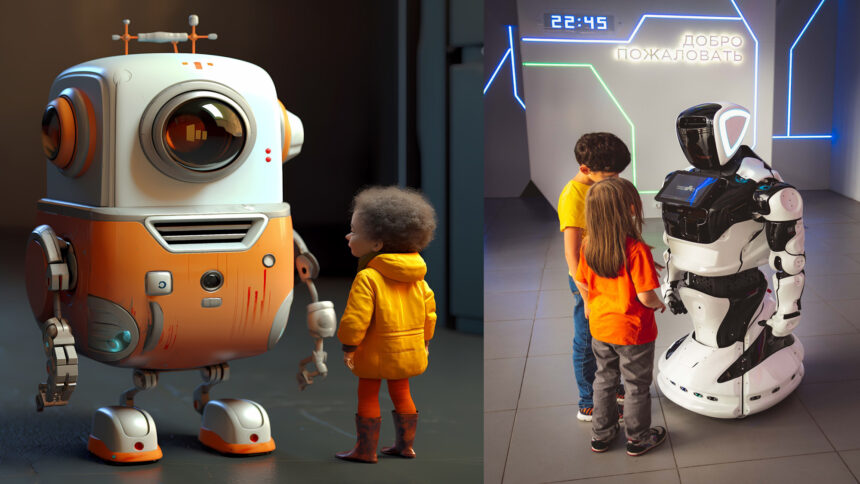Introduction
In 2025, AI babysitters and digital childcare assistants are no longer science fiction—they’re rapidly becoming essential tools for modern parents. These smart devices and AI-powered assistants are reshaping childcare by offering real-time monitoring, personalized learning, and safety features that give parents peace of mind.
What Are AI Babysitters?

AI babysitters refer to digital assistants equipped with artificial intelligence designed specifically to aid in childcare. These can range from smart cameras with facial recognition and alert systems to AI-powered interactive toys that help with learning and development. Unlike traditional babysitters, AI assistants operate 24/7 without fatigue and provide data-driven insights.
Key Features of Digital Childcare Assistants
- Real-Time Monitoring: AI cameras track a child’s movements, detect falls, and notify parents instantly via smartphones.
- Interactive Learning: Personalized educational content and games adapt to the child’s learning pace and preferences.
- Safety Alerts: Smart sensors monitor environmental hazards such as smoke, temperature, and air quality, ensuring a safe environment.
- Behavioral Insights: AI algorithms analyze patterns in a child’s behavior, helping parents identify developmental milestones or potential concerns early.
Benefits for Parents and Caregivers
For busy parents and caregivers, AI babysitters offer significant advantages:
- Peace of Mind: Continuous monitoring means parents can focus on work or errands while staying connected to their child’s safety.
- Enhanced Child Development: AI-driven interactive tools encourage cognitive and emotional growth in engaging ways.
- Accessibility: Digital childcare assistants can support parents who may not have access to traditional childcare options.
- Cost-Effective: Compared to hiring human babysitters, AI assistants offer affordable childcare support without compromising safety.
Ethical and Privacy Considerations

Despite their benefits, AI babysitters raise concerns around privacy and ethical use. Experts emphasize the importance of data security, transparent AI algorithms, and parental control over data sharing. Trusted brands are focusing on encryption and privacy policies to protect families.
The Future of AI in Childcare
As AI technology evolves, digital childcare assistants are expected to become even more intuitive, offering advanced emotional recognition and personalized caregiving. Collaboration between AI developers, child psychologists, and parents will be key to creating tools that balance technology and human warmth.
Conclusion
AI babysitters are transforming childcare in 2025 by blending technology with nurturing care. For parents seeking smart, reliable assistance, digital childcare assistants provide an innovative way to ensure safety, development, and peace of mind. To learn more about how AI is reshaping parenting, explore our related articles:









